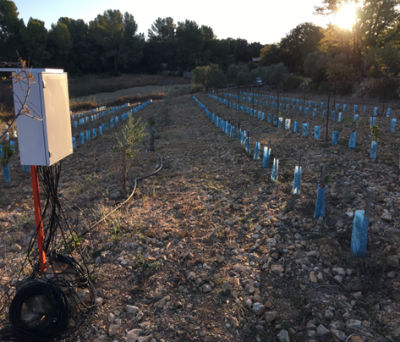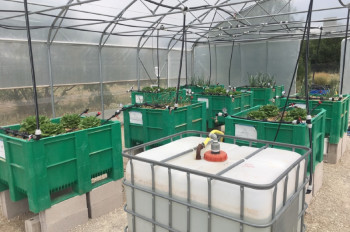
The thesis is part of the MUSE ALLEA project: "adapt the treatment of wastewater for agronomic use". ALLEA aims to provide a transversal and multi-scale vision on the development and consolidation of knowledge on the future of the flows of biological and chemical pollutants along the wastewater / irrigation system / soil / plant continuum.
In this context, three laboratories of the Montpellier pole offer a multidisciplinary approach (process engineering, microbiology, environmental chemistry, physics) to assess the influence of ecosystems and the quality of wastewater downstream of treatment on the fate of biological contaminants. The multi relationships between organic matter / microbial communities / contaminants will be studied from the end of soil treatment (by integrating the role of biofilms in irrigation networks).

Field experiments on the Murviel-lès-Montpellier platform will be supplemented by laboratory devices under controlled conditions in order to quantify the impact of this water resource on the microbial diversity at the outlet of the irrigation system and in the soil, the future. of dissolved and colloidal organic matter and the mechanisms of biofilm development.
Keywords : Water Reuse, drip-irrigation, reaction path, microbiome, fate of contaminants






